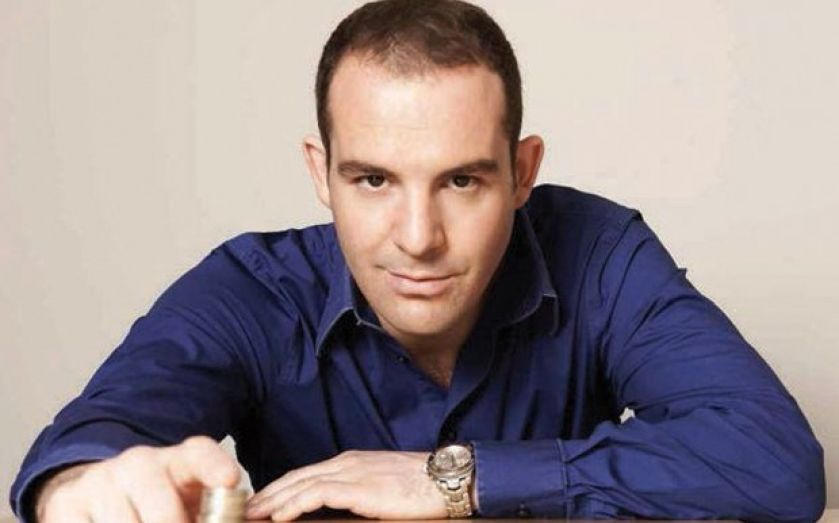Indignant brokers fiercely dismiss Martin Lewis’ notion many mortgages are ‘a ticking time bomb’

The well-known personal finance guru Martin Lewis recently warned that mortgages are a “ticking time bomb” for homeowners, as he said Brits should lock in cheap mortgage rates soon before monthly payments become unaffordable.
Lewis’ comments come as the cost of living for most Brits is climbing fast, with energy bills going up by an average of 54 per cent last month alone.
Moreover, taxes have gone up and food prices are rising across the country, pushed by the highest inflation in more than four decades.
However, a range of brokers have fiercely rejected Lewis’ warning, such as Lewis Shaw, founder of Shaw Financial Services, who said: “It is scandalous that anyone can stand up on live TV and make broad-brush statements, essentially giving mortgage advice, which is regulated by the FCA, to millions of already panic-stricken Brits.”
“If I were to stand up in front of a room full of people, let alone a nation actively looking for ‘hacks’ to save money due to the cost of living crisis, and say the same things, the FCA would be feeling my collar very quickly.”
Lewis Shaw
Shaw continued: “To just make bold statements such as ‘mortgages are a ticking time bomb’ does nothing to help anyone. I and other countless brokers and financial advisers tear our hair out each time it happens and it’s time it was stopped.”
Meanwhile, Imran Hussain, director at Harmony Financial Services said Martin Lewis may not be a qualified financial adviser but his heart is “in the right place as he is always here to champion rights for consumers and always on hand with money-saving tips.”
“The issue around paying booking fees to secure the best rate is a little off the mark as, for borrowers, it’s always about the best product for their circumstances,” he continued.
“Anyone thinking I’ll simply pay a lender a £1995 booking fee and that’s the mortgage sorted will be in for a shock as that’s not how it works.”
Imran Hussain

‘Beware those who preach the apocalypse’
David Robinson, co-founder and chartered wealth manager at Wildcat Law stressed that: “Winter is coming, but beware those who preach the apocalypse.”
Robinson recalled that homeowners have benefited from record low interest rates since 2016 and too most it is all they know.
“Can we expect mortgage rates to go up? Yes. With the popularity of 2 year fixed rate deals, especially among “non-advised” homeowners, will we see mortgage shock being experienced by many? Most certainly.”
“Will it cause foreclosures and mass repossessions? I don’t think so,” Robinson continued. Why?
“Because in 2014 something called the Mortgage Market Review came into force and as part of this the industry introduced stress testing to ensure borrowers could afford to maintain payments at a hypothetical higher rate.”
“The sector may just be entering hypothetical rate territory.”
David Robinson
“The other reason for optimism is many new borrowers will have borrowed at 95 per cent loan to values, which carry a significant premium over a more standard value.”
Moreover, house prices have risen to such an extent that many of these people will benefit from lower rates available to 80 per cent LTV mortgagees, when they exit their fixed deals, “just when they need it,” he said.
Bigger picture
For Rob Peters, who is director of Simple Fast Mortgage, it is important not to get fixated on booking fees alone and miss the big picture here.
The most suitable mortgage is the cheapest overall mortgage that meets the borrower’s circumstances and priorities, he explained.
“This takes into account all the fees and the interest rate, as well as any incentives such as cashback or a free valuation or legal service.”
Moreover, “this can be compared over the initial fixed rate period to give a true overall cost for the mortgage. Looking at one aspect of a mortgage in isolation is a sure fire way to end up with a more expensive overall mortgage deal,” Peters stressed.
Scott Taylor-Barr of Carl Summers Financial Services said in agreement that “the act of paying a booking fee does not secure you the interest rate with the lender, it is the act of making the application that secures you the rate.”
“So don’t discount a deal that could be perfect for you simply because it does not have a booking fee,” Taylor-Barr noted.
“In fact, very few lenders have booking fees on their mortgage deals currently, so there is a very good chance people would miss out on many more suitable and cheaper deals if they blindly went in search of one simply on the basis that it had a booking fee and others didn’t,” he concluded.